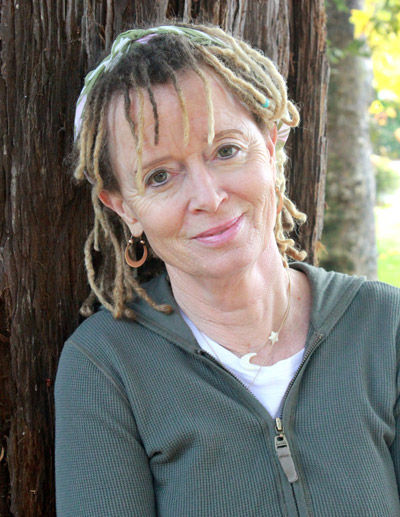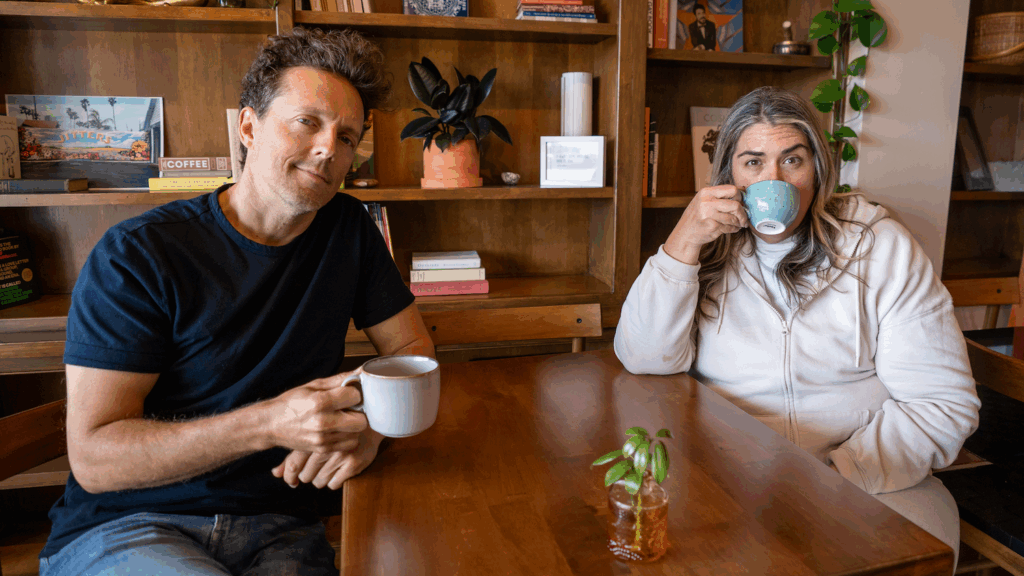
Anne Lamott
It’s been 20 years since Anne Lamott stunned the world with her Operating Instructions: A Journal of My Son’s First Year, which reviewers called “Hilarious, heartbreaking, courageous, wise, raw, and deeply spiritual.” She’s been on a roll ever since, with three recent books, one of which she co-wrote with her son, called Some Assembly Required: A Journal of My Son’s First Son. Her book on prayer, called Help, Thanks and Wow, is an Oprah pick. Her newest book, Stitches: A Handbook on Meaning, Hope and Repair, is on the New York Times best-seller list. Other best-selling books include Bird By Bird, Traveling Mercies, Plan B, and Grace (Eventually). She writes with depth, sarcasm, and superb craft. On February 27, she will return to the annual Writer’s Symposium By The Sea at Point Loma Nazarene University. Here, symposium founder and director Dean Nelson talks with the accomplished author about reading, writing, and parenting.
What do you read on a daily (or otherwise regular) basis?
I read the New York Times every day, and check in often with liberal political sites—talkingpointsmemo.com, salon.com. I’m usually noodling around with the current New Yorker. I read the daily excerpt from Fred Buechner. He has been a very important theologian in my life—so authentic, fresh, human, funny, honest, and so deeply in love with God. And every Thursday I rush to the grocery store for the new People magazine.
Whose writing would you miss if it weren’t available anymore?
Junot Diaz, Mary Oliver, Barbara Kingsolver, Frank Rich, Wendell Berry.
People say that being a grandparent is better than being a parent. Is that your experience?
It took a whole book called Some Assembly Required to capture how great and complex it is to be a grandmother. You fall so deeply in love with your grandbaby. It’s so so so much easier than being a parent, because you really don’t have much responsibility. And just when you are at the end of your rope with exhaustion, the parents take the baby away. So it’s the best of both worlds.
Do you have advice for grandparents?
Ask yourself constantly, WAIT—why am I talking? Keep your opinions on child rearing to yourself.
Do you have advice for parents?
Get help for your own problems. Otherwise your kid needs to resist you. Remember that your child does not need you to be a friend—they need you to be a parent. Remember that all parents mess up right and left, so talk to each other. Tell the truth. Share your experience, strength, and mistakes. This will help you keep the faith and your sense of humor.
What: The 19th annual Writer’s Symposium By The Sea
When: February 20, 25-27
Where: Point Loma Nazarene University
Who: Speakers include Jeannette Walls, author of The Glass Castle; Samuel Freedman, New York Times columnist and author of Breaking the Line; Siddhartha Mukherjee, cancer researcher and author of The Emperor of All Maladies; and Donald Miller, author of Blue Like Jazz, who is conducting a two-day Storyline Conference.
Tickets and more details at pointloma.edu/writers.
What does it take to tell a good story?
Something has to have happened! People want to follow the exploits of at least a couple of characters they are pulling for. They need to be uniquely and recognizably human. And there needs to be something at stake.
When you sit down to write a story, how do you start?
I start wherever I can. If I can see one scene or passage in my head, I start there. We all like to be able to see where the story takes place, and to imagine what that might be like. Shirley Jackson said that a confused reader is an antagonistic reader, and I live by that. It’s okay to start anywhere, and to let yourself write a big sloppy overly-detailed first draft. You just jump in, knowing that the water will be cold at first, but no one is making you swim.
How do you know when your story is finished?
You keep working on your piece over and over, trying to get the sections and paragraphs and sentences and the whole just right, but there’s a point at which you can tell you’ve begun hurting the work with your perfectionism. Then you have to release the work to new eyes.

















